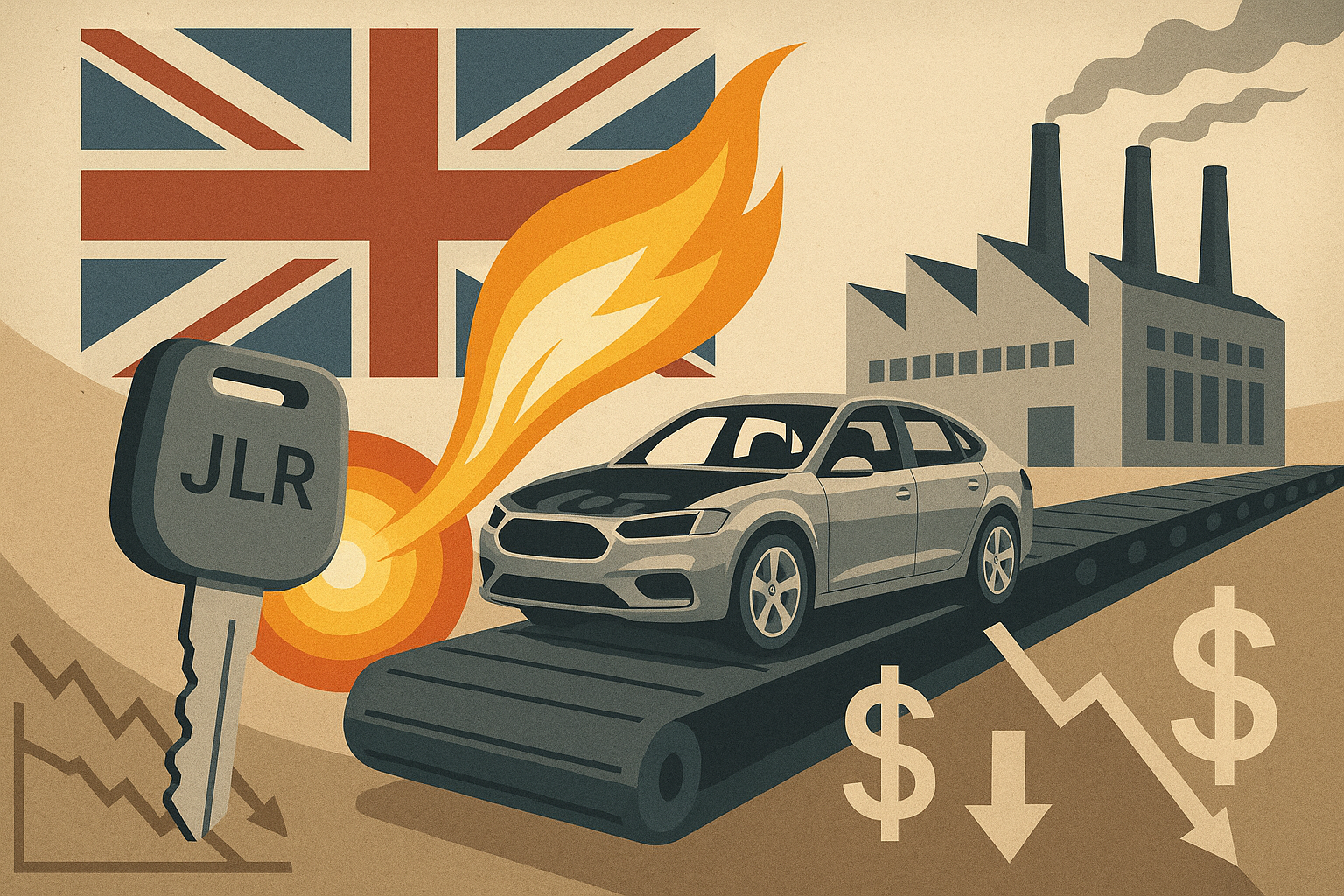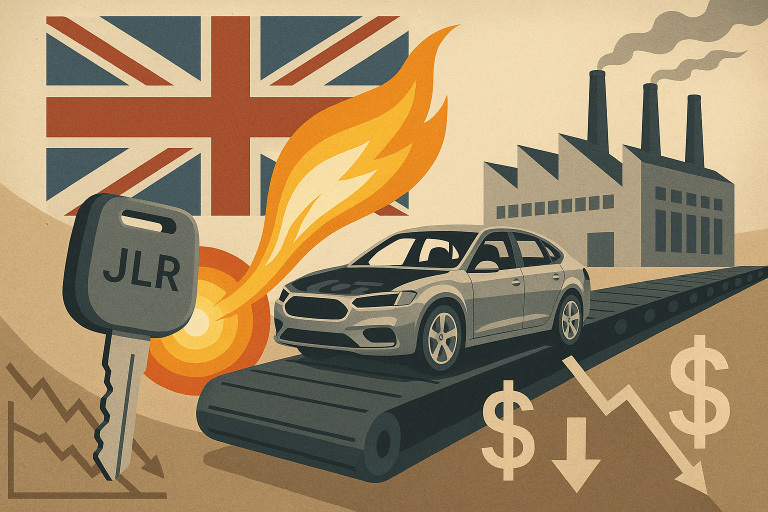
After a year of contraction, the UK’s manufacturing sector has shown a strong recovery, driven by the phased restart of Jaguar Land Rover’s (JLR) production following a crippling cyberattack.
The rebound, captured in S&P Global’s latest Manufacturing Purchasing Managers’ Index (PMI), has rippled through the industrial supply chain.
It lifted output across automotive and consumer goods while easing price pressures that have weighed on manufacturers for months.
October’s PMI rose to 49.7 from September’s 46.2, marking a 12-month high and signalling that the decline in activity is slowing.
Although the figure remains below the 50 threshold separating expansion from contraction, the improvement underscores a temporary stabilisation in factory output and costs.
JLR restart triggers a chain reaction across UK industry
Jaguar Land Rover’s gradual resumption of operations in early October, after a month-long shutdown, has served as the pivotal catalyst behind the sector’s upturn.
The outage, which had pushed UK car production to a 73-year low in September and disrupted over 5,000 mid-market businesses, left a backlog that manufacturers are now racing to fulfil.
S&P Global’s survey shows that production volumes increased in both consumer and intermediate goods, driven by pent-up demand from automotive supply chains linked to JLR’s restart.
The resulting uptick lifted output to its strongest level in a year.
However, experts caution that the rebound was heavily supported by firms drawing on existing inventories rather than new orders, leaving unsold stock to build up as domestic and export demand continued to lag.
Input prices hit their lowest level since 2024 as inflation pressure cools
A notable shift in the October data was the drop in input prices to their lowest point since December 2024.
This decline indicates easing inflationary pressure after a prolonged period of supply-side strain caused by high energy costs and material shortages.
The reduction in costs has offered breathing space for manufacturers struggling to manage wages and production expenses.
Employment trends, while still weak, also showed improvement. Job cuts slowed to their mildest pace in a year as companies sought to retain skilled labour amid tentative signs of recovery.
Although new orders and export demand remained in decline, both fell at a slower rate than in September, suggesting stabilisation in trading conditions.
For many firms, this softening of input inflation could mark a turning point.
If sustained, it would allow businesses to plan longer production cycles and potentially rebuild margins eroded by previous price volatility.
Budget uncertainty weighs on confidence despite uptick
Despite the positive movement in headline indicators, sentiment across the sector remains cautious.
Business optimism climbed to an eight-month high but stayed below its long-run average.
Uncertainty surrounding the government’s upcoming Budget continues to restrain expectations, with manufacturers wary of potential adjustments to the National Minimum Wage and employer National Insurance Contributions that could raise operating costs.
The recovery also remains sensitive to global trade dynamics.
The manufacturing sector, already hit by policy unpredictability under Donald Trump’s administration, continues to grapple with weak overseas orders.
These external pressures have slowed export growth, keeping many producers hesitant to commit to long-term investment.
The post JLR reboot ignites fragile UK manufacturing revival as inflation pressures ease appeared first on Invezz

